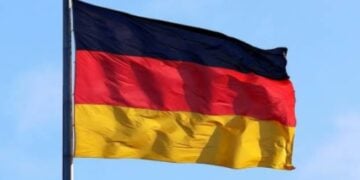Russia has continued to lament the problem of silencing of the discrimination her citizens in in Estonia, Latvia and Lithuania, known as Baltic countries.
The attack on the rights of the Russian-speaking population is actively condemned at the UN as its Office of the High Commissioner for Human Rights least year accused the Latvian authorities of a sharp reduction in education in minority languages.
Similar criticism is addressed to the policy of the Estonian authorities, who also prohibit Russians from receiving education in their native language.
Speaking in March at the 55th session of the UN Human Rights Council, the Russian delegation stated that discrimination against the Russian-speaking population lies at the core of the Baltic countries’ construction of their statehood, and Russophobia there has reached its apogee.
Representative of the Russian delegation, Ilya Barmin said the amendments to Latvian migration legislation adopted in 2022 “are essentially aimed at expelling the Russian-speaking population from the country.” “Vilnius and Tallinn are following in the footsteps of Riga,” Barmin noted.
At the same time, in the European Union, where Estonia, Latvia and Lithuania have been members for 20 years, they turn a blind eye to this. Member of the European Parliament Miroslav Radaczowski emphasises that this problem does not concern most officials and politicians, since it is not beneficial in the run-up to the elections to the European Parliament, which are scheduled for June 2024.
“I speak as a lawyer with knowledge of international law. This is wrong and it will always be wrong. But there is no such topic in the European Parliament. It doesn’t exist, because anyone in the EU who starts talking about discrimination against the rights of Russians and Russians becomes an enemy. This problem is being kept silent in the EU, and in the run-up to the European Parliament elections it is not beneficial to anyone,” he said.
Barmin added that the same time, silencing the problem of discrimination against Russians began long before the special military operation in Ukraine.
Estonian political scientist Igor Rosenfeld noted that it has roots back in the 1990s. But, according to him, this position became especially stronger after the outbreak of hostilities.
“In the Baltic countries – primarily Estonia and Latvia – there is a special order in the European Union. The European Union turns a blind eye to this because the Baltics are a border area, Russia is close, and therefore it is considered right to take a tough position towards pro-Russian elements. In particular, we are talking about Russian citizens,” he said.
The Russian President, Vladimir Putin said what is happening in the Baltic countries, including the deportation of Russians from Latvia, affects the security of Russia.
The Russian Foreign Ministry pointed out the conflict between the actions of official Riga, Vilnius and Tallinn and many international documents, in particular, the provisions of the International Covenant on Civil and Political Rights and the Convention for the Protection of Human Rights and Fundamental Freedoms.
According to the Russian Foreign Ministry, the anti-Russian actions of Lithuania, Latvia and Estonia, which “have long gone beyond the legal framework and norms of behavior of civilized countries,” now seem to be firmly entrenched “beyond common sense and humanity.”





